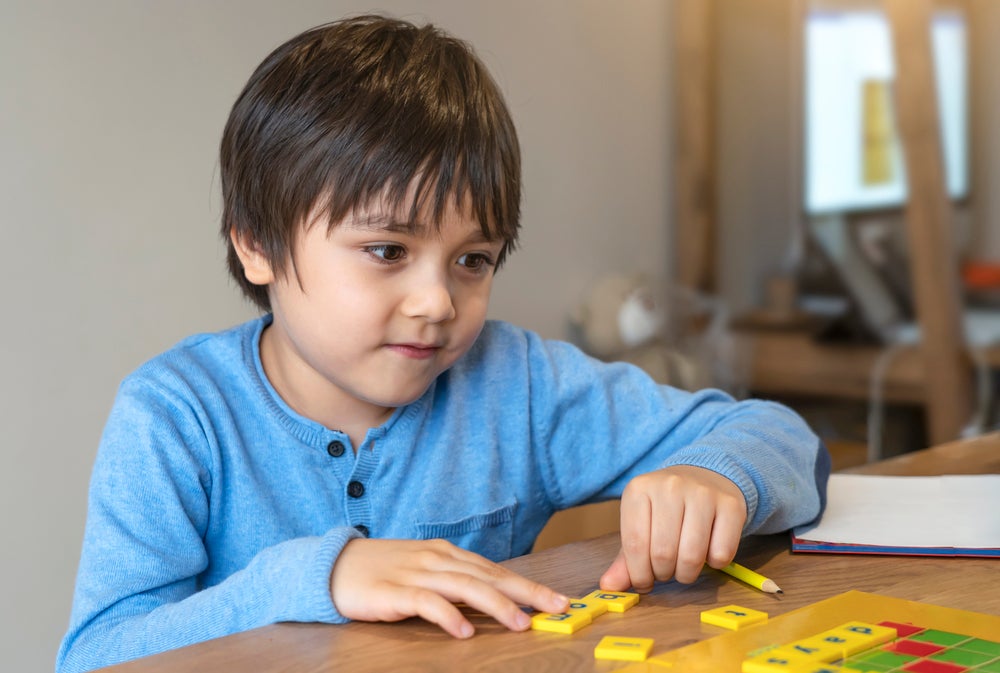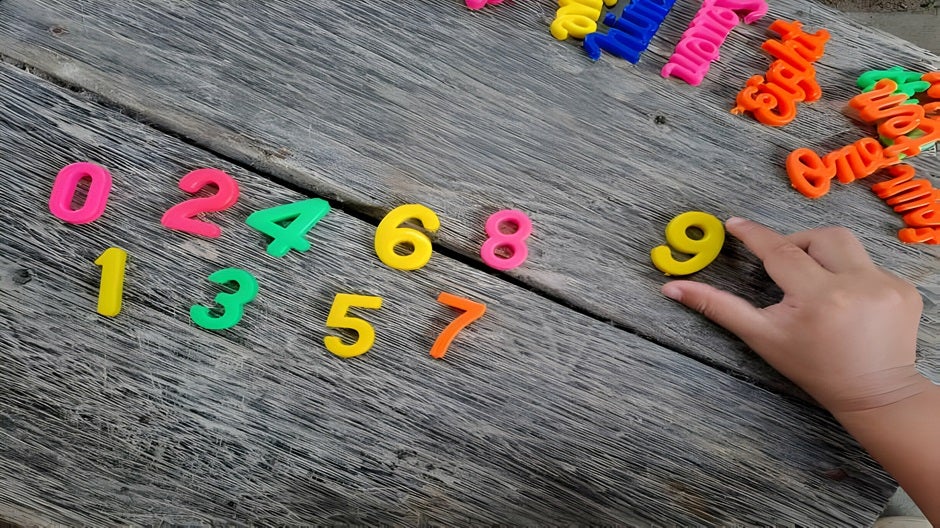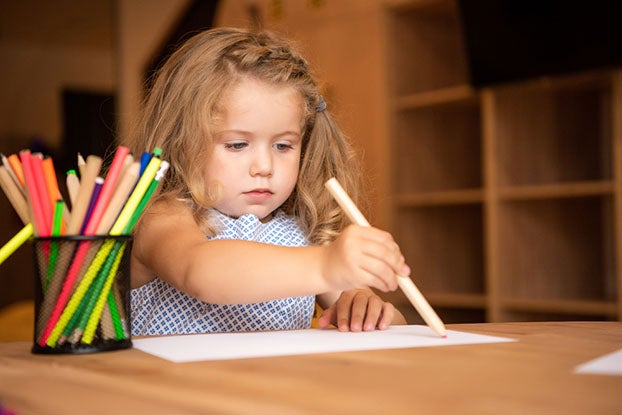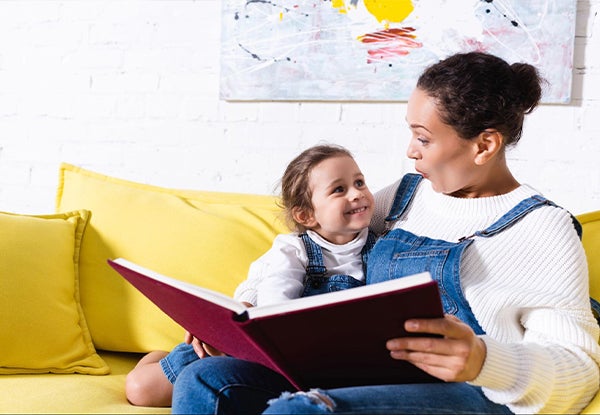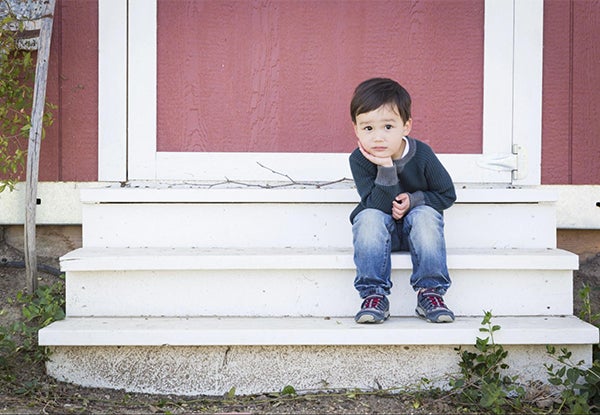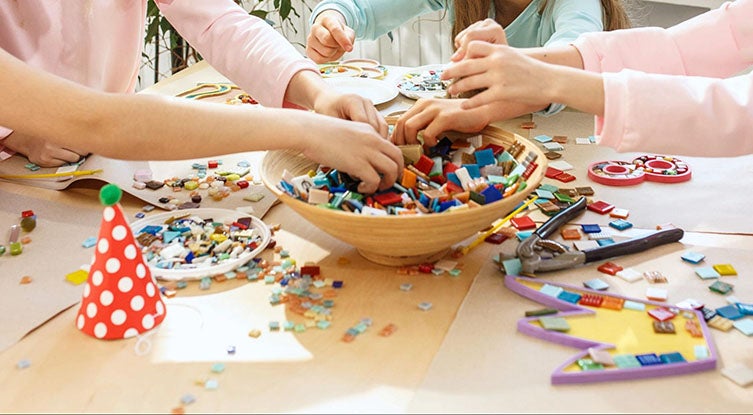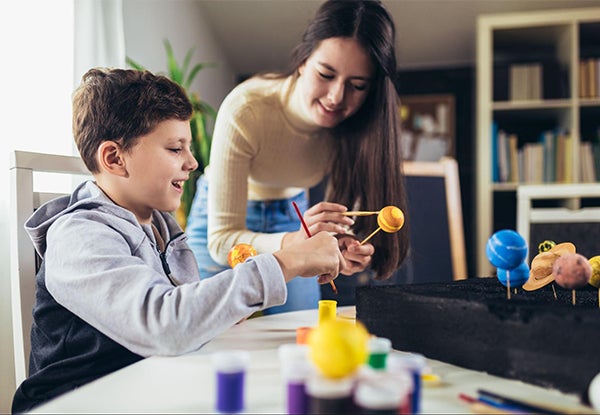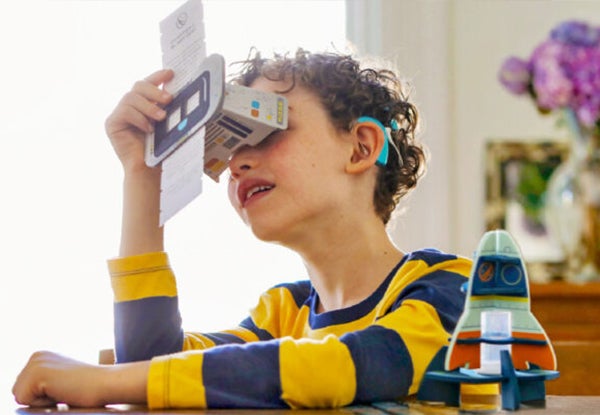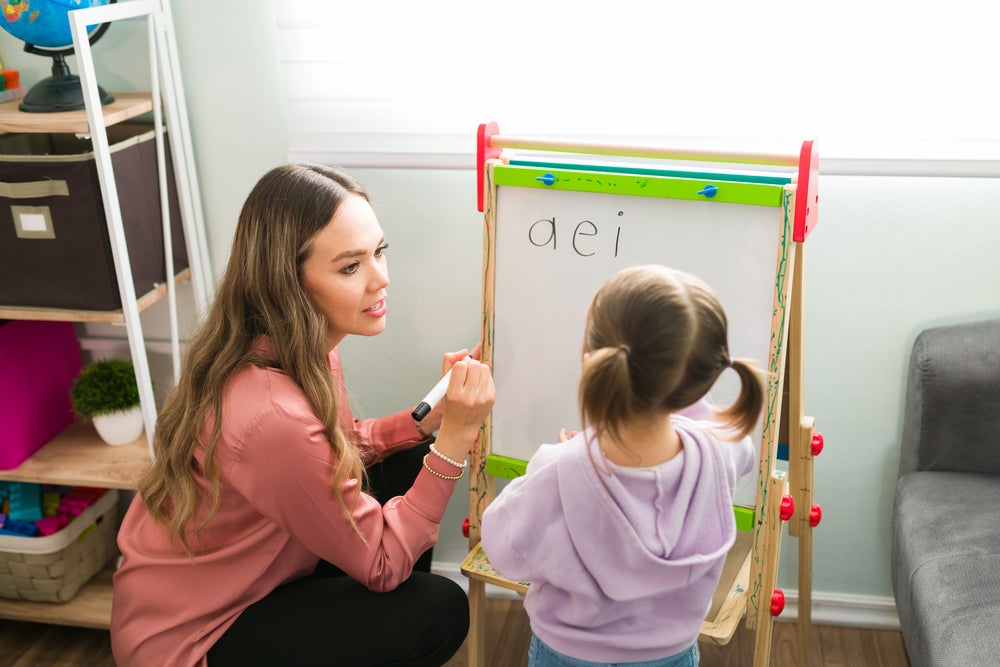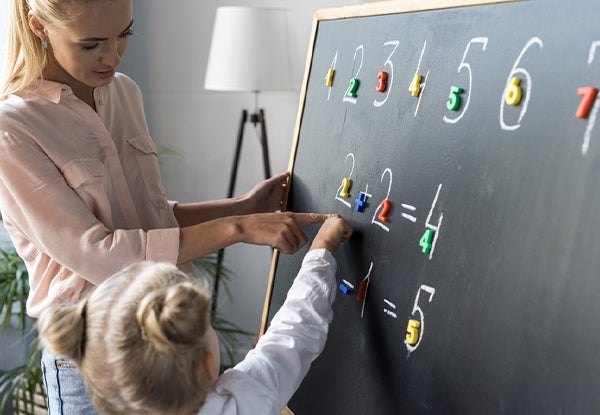When your child can read, they can explore new worlds and learn about anything they want to study. As their first teacher, you play an important role in their early literacy development. One way to support them is by introducing sight words for kindergarten.
In this guide, we’ll examine these words and explain why they’re essential for your child’s reading success. We’ll also provide a list of common sight words for kindergarten and tips for helping your child master them.
Table Of Contents
- What Are Sight Words?
- Sight Words For Kindergarten
- Tips For Teaching Sight Words
- Activities For Practicing Sight Words For Kindergarten
What Are Sight Words?
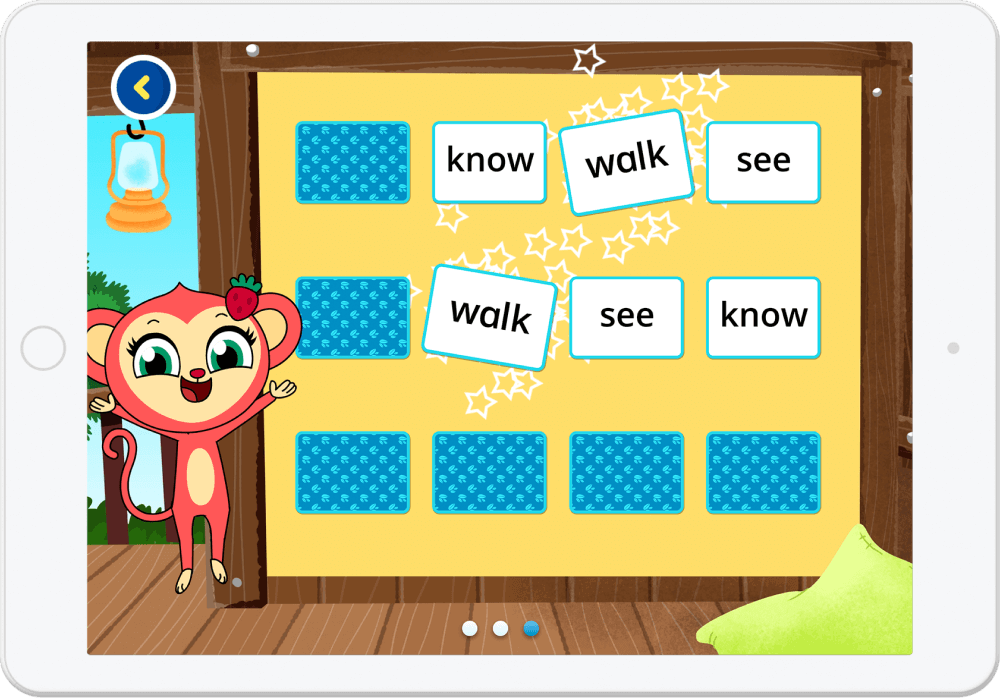
Sight words, also known as high-frequency words, are a group of common words that appear frequently in written texts. They make up 80% of the words in children’s books and 50% of all written text.
If your child learns to recognize these words automatically, it’ll help them read more fluently. This means they can focus on comprehension and understanding the meaning of the text rather than struggling to decode each word.
Two different sight word lists dominate early reading instruction: the Dolch Word List and the Fry Word List. Each is broken down into different levels based on difficulty.
Dr. Edward William Dolch developed the Dolch Word List by studying children’s books in the 1930s and 1940s. His list has 315 total words. Of those, 220 are divided into grade levels. The other 95 words are high-frequency nouns students will be exposed to as they read.
Dr. Edward Fry created the Fry Sight Words list in the 1950s using a method similar to Dr. Dolch’s. He then updated his list in 1980. Today, the Fry Sight Word list has 1,000 words in total. They’re divided into bands of 100 words based on how often they occur in the English language.
If you’re not sure which of the two lists to use, ask your child’s school or teacher if they have a preference. Or, you can simply pick one and begin using it. Many of the words overlap.
Sight words fall into the “Core Skills” category in the Begin Approach. It’s one of our 5C’s:
- Core Skills
- Creativity
- Critical Thinking
- Curiosity
- Character
Sight Words Vs. Phonics
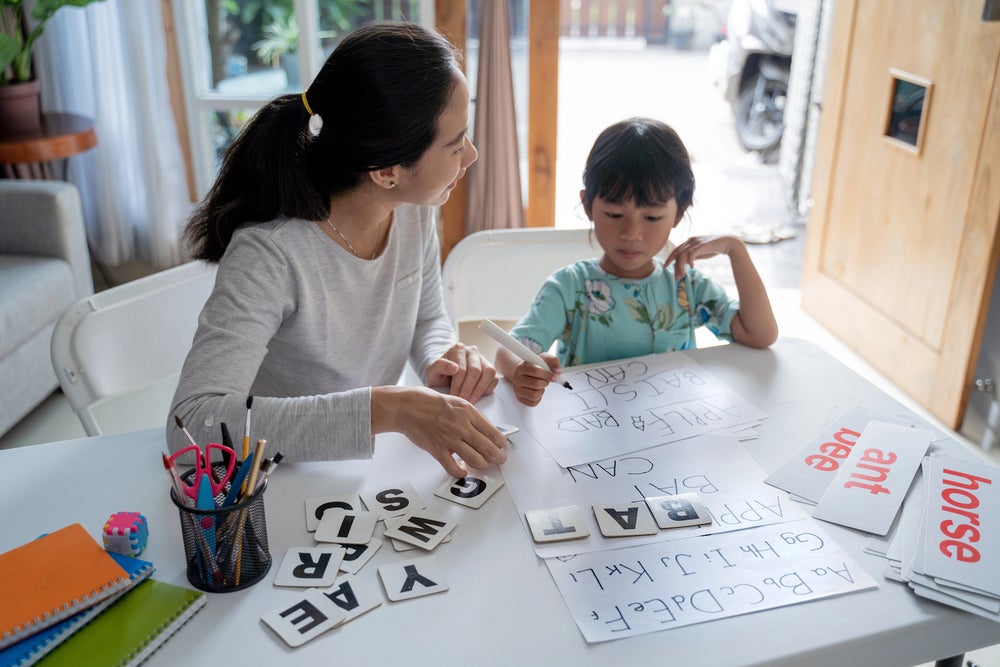
You know that phonics is an important part of reading, and you want your child to understand how to sound out unfamiliar words. So why do you need to teach sight words?
The debate on phonics vs. sight words has been ongoing among educators for decades. But the truth is, both approaches are essential for reading success.
While phonics teaches your child how to decode words by sounding out letter sounds, sight words teach them to recognize whole words through visual memory and pattern recognition.
Plus, it’s important to note that many sight words are rule breakers — they don’t follow the typical phonetic patterns. Here are a few examples:
- The
- Said
- Was
You can’t sound out any of those words and arrive at the correct pronunciation. Teaching your child to recognize them by sight will help them read more efficiently.
Sight Words For Kindergarten
Now that you know more about sight words for kindergarten, it’s time to look at some specific words to start teaching your child.
Here are the 52 kindergarten words from the Dolch Word List in alphabetical order:
- All
- Am
- Are
- At
- Ate
- Be
- Black
- Brown
- But
- Came
- Did
- Do
- Eat
- Four
- Get
- Good
- Have
- He
- Into
- Like
- Must
- New
- No
- Now
- On
- Our
- Out
- Please
- Pretty
- Ran
- Ride
- Saw
- Say
- She
- So
- Soon
- That
- There
- They
- This
- Too
- Under
- Want
- Was
- Well
- Went
- What
- White
- Will
- With
- Yes
These words may seem simple, but they’re essential building blocks for your child’s reading skills.
Tips For Teaching Sight Words

If you’re unsure about teaching your child to read sight words, here are some helpful tips.
Start Small
Your child has 52 words to learn, so trying to teach them all at once can quickly become overwhelming for both of you.
To keep the process more manageable, pick five words to start with. Once your child can recognize them instantly and can read them without hesitation, it’s time to add five more words into the mix.
Keep Practice Sessions Short
Young learners don’t have long attention spans. Short daily lessons are more effective at this age than long, infrequent ones.
Aim for 15 minutes of practice each day. Soon, these practice sessions will become a habit you both look forward to.
Tip: Just 15 minutes a day of using HOMER is proven to increase kids’ reading scores by 74%!
Get Creative
Kids learn best through hands-on activities, so get creative when teaching sight words. You can use flashcards, memberships to educational apps, puzzles, or even sidewalk chalk to make learning more interactive and engaging for your child.
We’ll give you some ideas for fun activities later, so keep reading!
Stay Positive
It can be frustrating when you think your child has a word down but misses it on your next review. If that happens, remember to stay calm and positive.
Your child can sense how you’re feeling, and if they see you getting mad, it can make them feel stressed or anxious about learning.
Instead, take a deep breath and encourage them to try again. Learning sight words takes practice, so be patient and celebrate their progress!
Activities For Practicing Sight Words For Kindergarten
Spell With Magnetic Letters
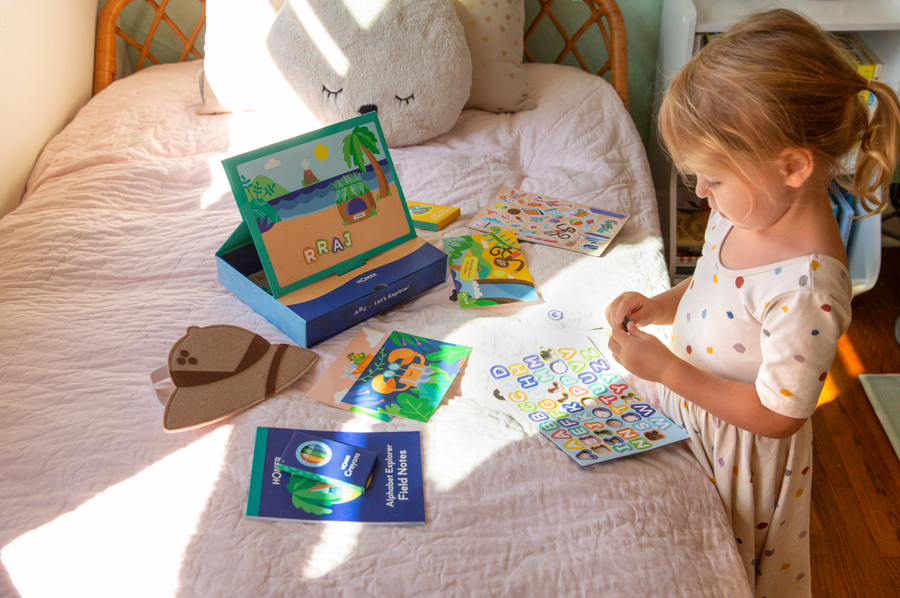
With a set of magnet letters and a surface to play on, your child can spell lots of words. Kids love the colorful letters in the HOMER Explore Letters Kit!
Once you have your magnets, try one of these activities:
- Magnet hide: Hide all the letters for a specific word and ask your child to go find each letter. Once they have them all, ask them to assemble the word on a cookie sheet or another play surface and then read it to you.
- Magnet match: Hand your child a flashcard with a sight word, and ask them to find each letter magnet they need to spell the word.
- Magnet race: Spread out the letters in one area of the room and have your child stand in another. Call out the first letter in the word and ask them to race across the room to find the correct letter.
Play Games With Flash Cards
If you don’t have flash cards for the sight words for kindergarten, don’t worry. You can easily create your own with a stack of index cards and a thick permanent marker. Simply write one word on each card.
When you’re ready to play, give these games a try:
- Sight word slap: Spread the cards face up on a flat surface. Hand your child a fly swatter and ask them to slap the word you call out.
- Sight word trail: Spread the cards across the floor, creating a trail of words. Ask your child to start at one end and read their way to the other.
- Reading race: Start a timer and see how long it takes your child to correctly read all the words in their stack. Did they beat their time from yesterday?
Include Intentional Screen Time
Screen time gets a bad rap these days, but it is a useful tool for teaching kindergarten sight words.
HOMER is our favorite. It’s screen time you can feel good about! The lessons, games, and activities are personalized to your child’s age and level, and grow with them as they learn.
With HOMER, you can:
- Tell us about your child’s interests to ensure they enjoy the games.
- Give your child a chance to practice sight words independently.
- Sit back and know your child is developing a love of learning through play!
Read Together
Modeling good reading is one of the best ways to help your child learn sight words. Pick a children’s book and sit together.
As you read, ask your child to:
- Point out the sight words they see
- Read the sight words they know aloud (you’ll read the other words)
- Say the sight words in a silly voice
- Answer questions to ensure their comprehension
Unlock A Love Of Learning With Begin
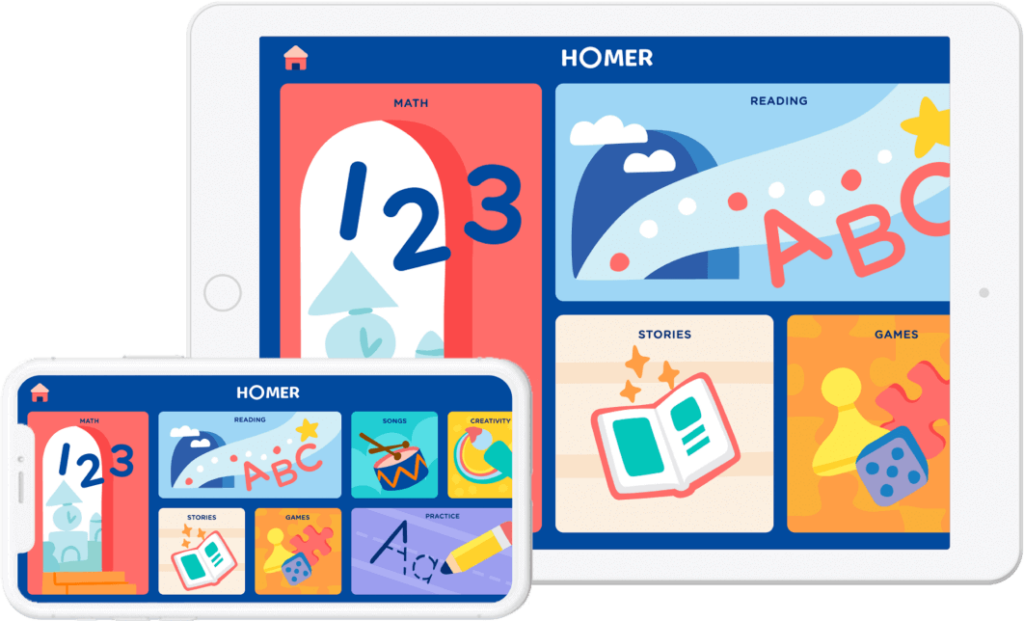
Sight words for kindergarten are important stepping stones for early reading success. As you’re helping your child master these words, remember to make it fun and engaging. Keep the practice sessions short and sweet, and stay positive.
Before you know it, your little one will read whole books alone! Sign up for the Begin Membership to help them get there more quickly.
Begin is play-based learning at its finest, with a membership designed for your child. Take the quiz to see which plan is best for your child.
